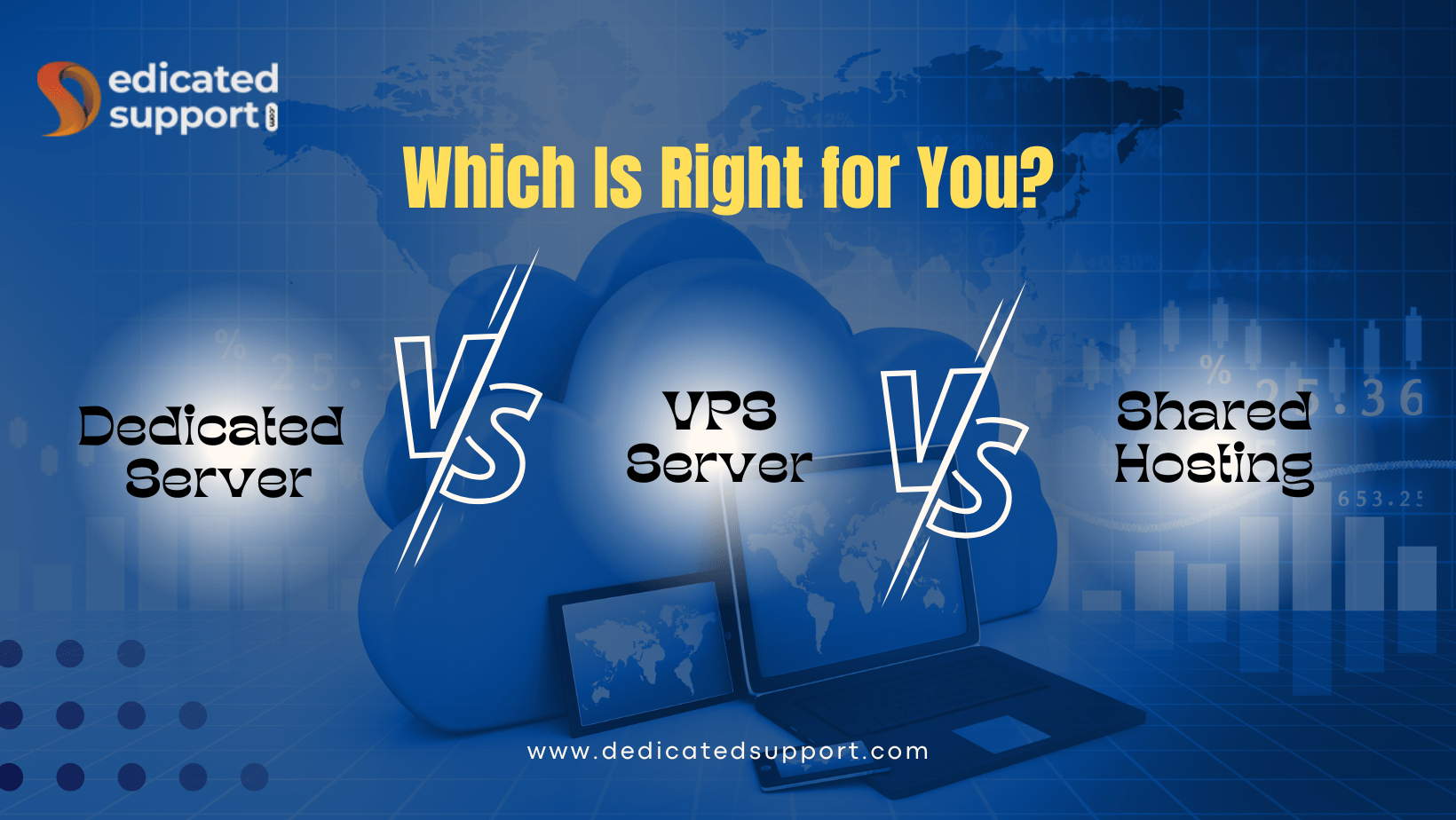
In the fast-evolving digital landscape, web hosting options have multiplied, catering to a wide array of needs and preferences. Among the most popular choices are VPS (Virtual Private Server) servers, dedicated servers, and shared hosting. Each of these hosting solutions comes with its unique set of features and advantages, making it crucial to understand their differences to choose the best one for your website. In this article, we’ll compare VPS servers, dedicated servers, and shared hosting, helping you make an informed decision that suits your requirements and budget.
Introduction
Web hosting is the foundation of any online presence. It determines the speed, reliability, and overall performance of a website. As businesses and individuals seek hosting solutions, they often encounter three main options: shared hosting, VPS servers, and dedicated servers. Each has its own advantages and drawbacks, tailored to different requirements.
Shared Hosting: Economical but Limited
Shared hosting is like living in an apartment complex, where multiple tenants share resources. Websites on shared hosting plans share server space, CPU power, and other resources, making it a cost-effective solution for small websites with limited traffic. However, performance can be affected if one website consumes excessive resources, leading to slower load times and potential downtime.
VPS Servers: Balance Between Cost and Control
VPS servers offer a middle ground between shared hosting and dedicated servers. They involve splitting a physical server into multiple virtual servers, each with its own dedicated resources. This allows for better performance and more control over configurations compared to shared hosting. It’s suitable for growing websites that require more resources and control without the high costs of a dedicated server.
Dedicated Servers: Unmatched Performance and Control
Dedicated servers provide the highest level of control and performance. Entire servers are dedicated to a single user, ensuring that all resources are exclusively used for their website. This results in faster load times, better security, and the ability to handle high-traffic volumes. Dedicated servers are ideal for large businesses, e-commerce sites, and applications with high resource demands.
Resource Allocation: A Comparative Analysis
Shared hosting divides resources among multiple users, potentially leading to resource contention and slower performance. VPS servers guarantee dedicated resources for each user, preventing the “neighbor effect” seen in shared hosting. Dedicated servers offer the most robust resource allocation, as the entire server is at the user’s disposal.
Scalability: Meeting Growing Needs
As your website grows, so do its resource needs. Shared hosting might struggle to accommodate increasing traffic, while VPS servers can be scaled vertically (upgrading resources) or horizontally (adding more virtual servers). Dedicated servers provide unparalleled scalability options, making them suitable for websites expecting significant growth.
Security Measures: Protecting Your Data
Security is paramount in the digital age. Shared hosting’s shared environment can expose websites to vulnerabilities if one site is compromised. VPS servers provide greater security by isolating virtual environments. Dedicated servers offer the highest level of security, as users have complete control over server settings and can implement custom security measures.
Customization and Flexibility
VPS servers and dedicated servers excel in terms of customization. Users can choose operating systems, software, and configurations tailored to their needs. Shared hosting, however, limits customization due to its shared nature.
Management and Technical Expertise
Shared hosting is the easiest to manage, making it suitable for beginners. VPS servers and dedicated servers require more technical knowledge, but they also provide more control. Dedicated servers demand the highest level of expertise, often requiring a dedicated IT team for maintenance.
Performance Metrics: Speed and Uptime
Performance is a critical factor for user satisfaction. Shared hosting’s performance can be inconsistent due to resource sharing. VPS servers offer stable performance with dedicated resources. Dedicated servers provide the best performance, ensuring fast load times and minimal downtime.
Price Points: Budget Considerations
Shared hosting is the most economical option, making it suitable for startups and small businesses. VPS servers offer a balance between cost and performance. Dedicated servers come at a higher price point but offer unmatched performance and control.
Choosing Based on Your Needs
Selecting the right hosting solution depends on your website’s size, traffic, budget, and technical expertise. Shared hosting is ideal for beginners and small websites. VPS servers suit growing websites with moderate traffic, while dedicated servers are best for resource-intensive applications.
Conclusion
In the ever-expanding digital world, choosing the right hosting solution is crucial for your website’s success. Shared hosting, VPS servers, and dedicated servers each offer a unique set of features that cater to different needs. By assessing your website’s requirements and considering factors like performance, scalability, security, and budget, you can make an informed decision that ensures optimal performance and user experience.